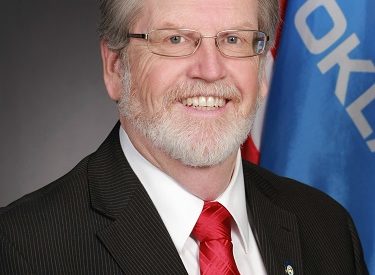Senate Appropriations Chair Provides Budget Breakdown
Mike Seals - September 20, 2020 7:58 pm

Sen. Roger Thompson
By Sen. Roger Thompson
It’s often said the most important responsibility of the Legislature is to write and pass a balanced budget. As Senate Appropriations chair, I can tell you that the budget impacts every single man, woman and child in our state. Each week, I plan to share an article examining different aspects of the budget to help give Oklahomans insight into this work.
This week, I want to look at the fiscal year 2021 budget and how we prioritized our public schools while still ensuring vital areas including transportation and retirement systems were also protected.
To say the least, 2020 has been an unusual year. Even though many of the revenue numbers in Oklahoma were strong when we began the year, we were concerned about the downturn in oil and gas as a result of the price war between Russia and Saudi Arabia. While we have worked diligently to diversify our economy, Oklahoma is still at its heart an oil and gas state. When prices are low, it impacts almost every aspect of our economy, so we were already preparing for the hit to our economy and the state budget.
A challenging economic picture was further complicated when the COVID-19 pandemic hit our state last spring. Businesses were closed, impacting a variety of revenue streams. Among those closed were the casinos. The tribes pay exclusivity fees that go straight into the 1017 fund, a critical revenue source that directly impacts our public schools—last year, the 1017 fund represented about 28 percent of state appropriations to public education. Casino exclusivity fees represent about $144 million a year for the 1017 fund. When the casinos shut down completely, it cost the state about $12 million dollars for just one month. When you looked at the overall impact of everything that was happening in our economy, we knew we would have to identify more than $300 million we could redirect to the 1017 fund just to keep education whole and moving forward.
We knew we had to redirect money to the 1017 fund, but in a way that would preserve other essential services. Oklahoma has made significant progress improving our transportation infrastructure, which had been underfunded for decades. We normally give roads $575 million a year. Instead of giving them that same amount in cash, we redirected $180 million of that to the 1017 fund, but we gave transportation the right to bond long-term infrastructure, and at a time when interest rates were historically low—it just made good sense. We didn’t slow down any of Oklahoma’s ongoing road work.
We also examined the extra payments we’d been making to our retirement systems. These had also been underfunded for years, threatening the stability of state pension funds. Over the past several years, we’ve enacted numerous reforms and even made extra payments each year into the retirement systems. This year, we looked at the areas of revenue that go into our state payments for the Teachers Retirement System. Normally, we put about $156 million from income tax collections into TRS. We took 25 percent of this, about $39 million, and redirected it to the 1017 fund and did the same thing with other revenue sources, including sales tax, corporate income tax and use taxes, which enabled us to redirect another $73 million to the 1017 fund.
We did not touch the corpus of TRS. The way I describe it is when times are good, I may choose to make double house payments—when times are tight, I still make the required payment, but I don’t double it. That is basically what we did with TRS. Furthermore, over the next four years, as our economy improves, those funds will be restored.
We did the same thing with retirement system payments for police, fire and other law enforcement, temporarily redirecting approximately $45 million in insurance premiums—those payments will also be restored.
The work we’ve done shoring up those pension systems has been so solid, that even temporarily redirecting part of the additional payments we’ve been making, we were still able to enact a cost of living adjustment (COLA) for state retirees this year, for the first time in 12 years.
The 1017 fund was further bolstered by utilizing $30 million from the Medical Marijuana licensing fees and excise taxes from sales of the product. Again, looking at the full budget picture and the needs in education and other vital areas, I remain convinced these moves were essential and were approached in the most thoughtful and fiscally responsible way possible.
Again, despite facing a $1.3 billion shortfall for the FY’21 budget, these strategies enabled us to protect funding for our schools while still protecting the critical investments we’ve made in transportation and our pension systems while minimizing reductions in other areas of state government that so many Oklahomans depend on.
These were tough, but solid decisions and I appreciate the support of every legislator who voted for this budget—a budget that will leave us in much better shape moving forward.
If you have any questions about the budget or the appropriations process, I invite you to contact me at 405-521-5588 or email [email protected]. Thank you.



